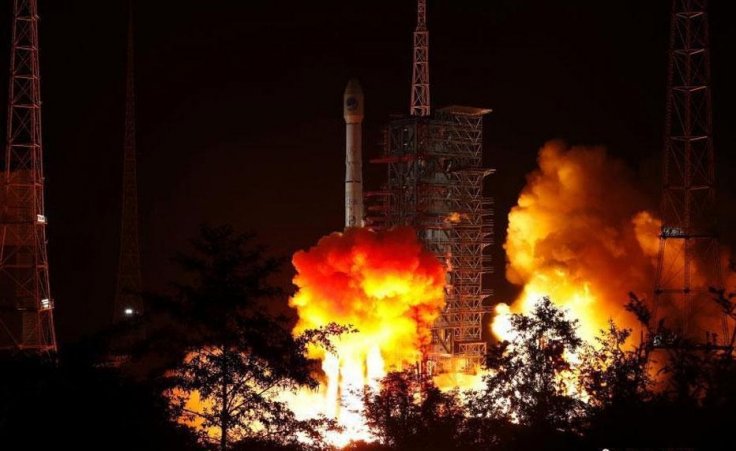China's long-standing aspiration to have its own global navigation system has been fulfilled with its successful launch of the last satellite, part of the BeiDou network, on Tuesday, June 23, after one-week delay.
The success meant, China has now global coverage for navigation that will rival the American GPS (Global Positioning System) and Russian GLONASS (Global Navigation Satellite System). With 35 satellites in orbit, BeiDou, also known as BDS system, will have wider coverage than its two rivals GPS and GLONASS which have 33 and 26 orbiting satellites respectively.
The last launch completed the constellation of three "inclined geosynchronous satellite orbit" that will circle the Earth in "figure of 8" orbit. It was launched by a Long March 3B rocket from Xichang Launch Centre in China's Sichuan province on June 23 morning at 9.43 AM Beijing time.
"The launched satellite, a geostationary satellite, will undergo a series of on-orbit tests before it is officially commissioned. Comprehensive tests for the entire BDS system will be conducted to ensure stable and reliable operation of the system with outstanding performances," a BeiDou release said.

Technology to Rival US
China decided to have its own network of satellites to reduce the dependence on the U.S. Air Force's GPS. The first satellite BeiDou-1 was launched in 2000 followed by completion of the second generation in 2012 but it had coverage only in Asia Pacific Region. The third generation of BeiDou, the current one, was first launched in 2015 aiming at global coverage.
At present, most of the countries rely on GPS for navigation while some of them have launched their own navigation satellites. But once the final BDS satellite is fully operational, it will provide them with an alternative. It offers high-precision positioning up to 10-meter accuracy, helping the users with short messaging communication — a feature GPS doesn't have — and satellite-based augmentation with an accuracy of up to five meters in China and its surrounding areas of Asia Pacific region.
The third generation of BDS has a group of 30 satellites — three at the geostationary orbits, three at the inclined geosynchronous orbits and 24 at the medium Earth orbit — to offer higher bandwidth, allowing better communication capabilities and better accuracy.
Yang Changfeng, the chief architect of the BDS told the Global Times that it is compatible with GPS and GLONASS and Europe's Galileo meaning users can freely choose between navigation satellites for accurate global coverage.
Greater Help for Chinese Military
The completion of the system also means that the Chinese military will be better equipped in terms of strateic reach as BeiDou offers better accuracy than the global standard GPS. For military use, it will have up to 10-centimeter accuracy compared to GPS' 30cm. China plans to launch more satellites to improve accuracy to up to one-centimeter for all its users.
"BDS provides time-and-space location benchmarks, which will have a great influence on the country's social and economic development, as well as people's lives," Chen Zhonggui, chief designer of the BDS-3 satellites at CAST, told Xinhua.
While China has already made it available for commercial uses for Chinese fishermen and road construction firms, the completion of the final stage will help them with its strategic 'Belt and Road Initiative'. The network of roads and highways connects Mainland China to nearly 70 countries. In case of a conflict, China can quickly mobilize the army.









